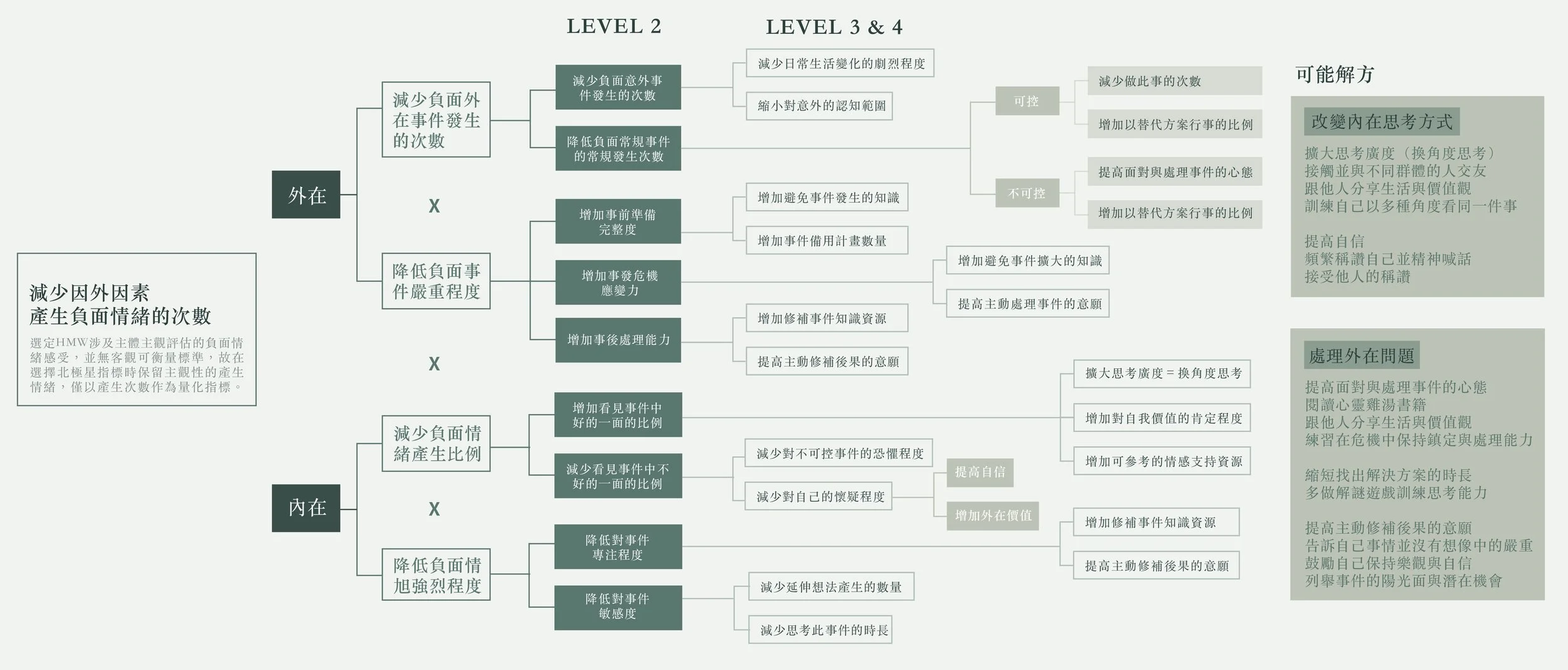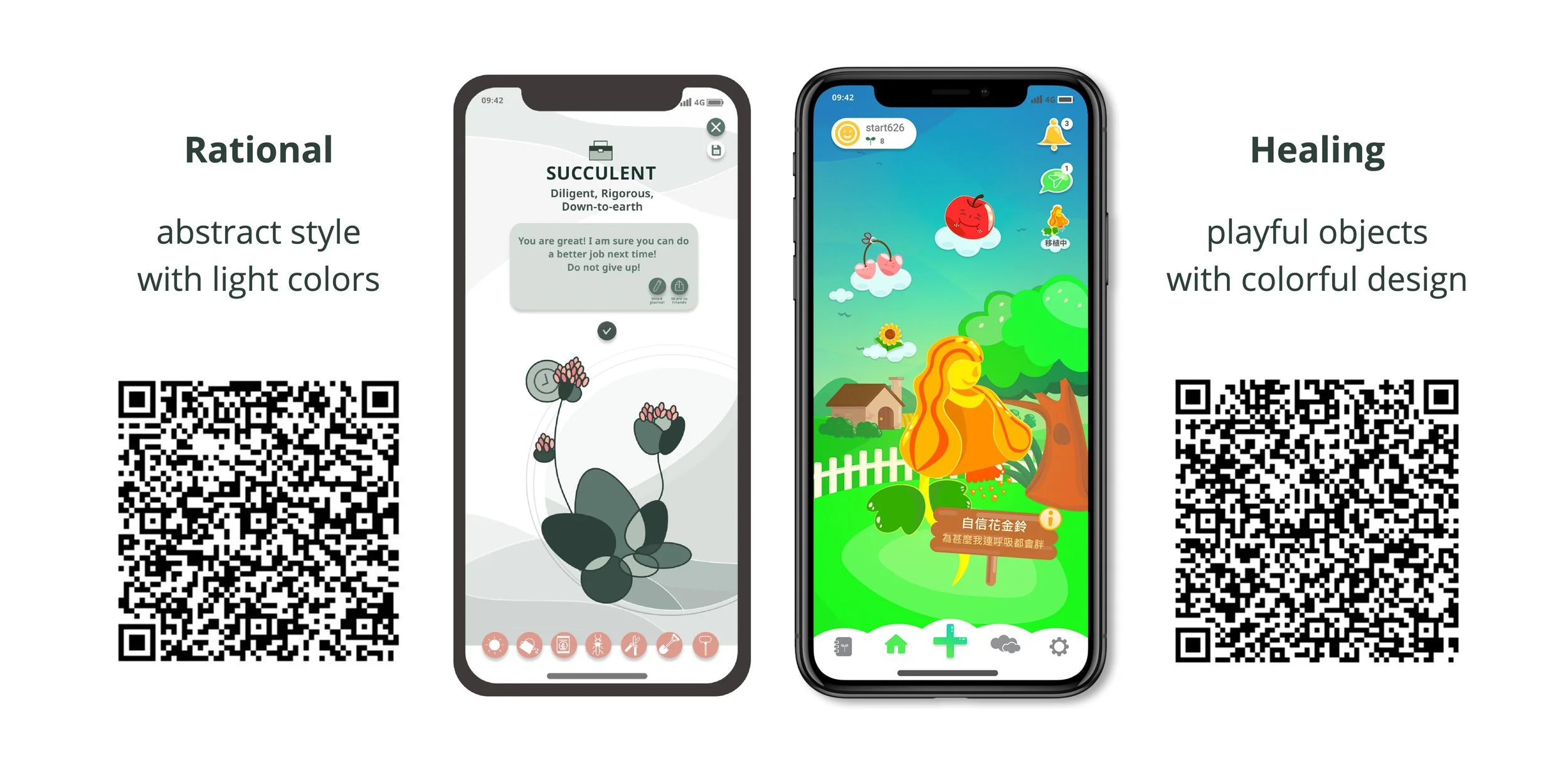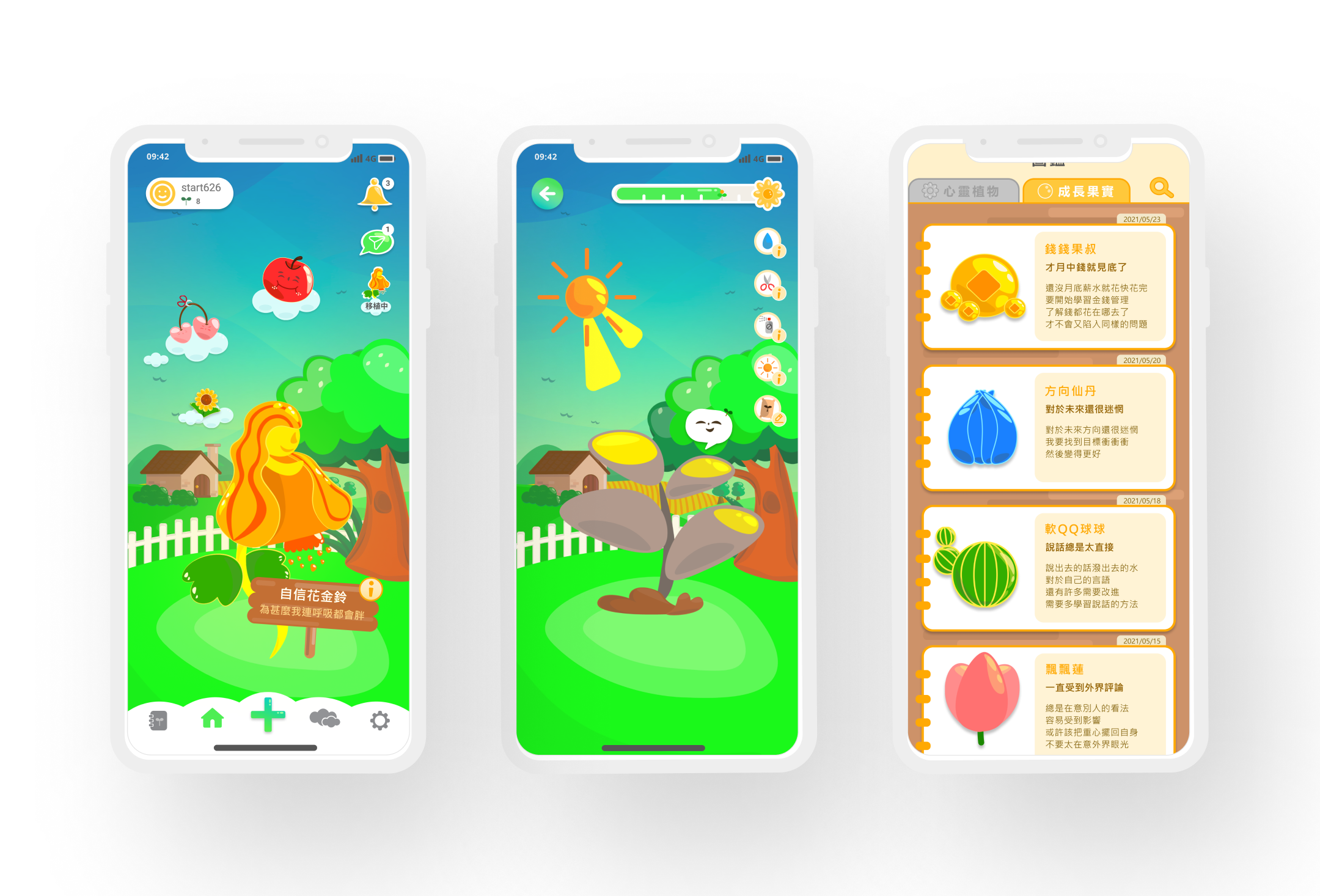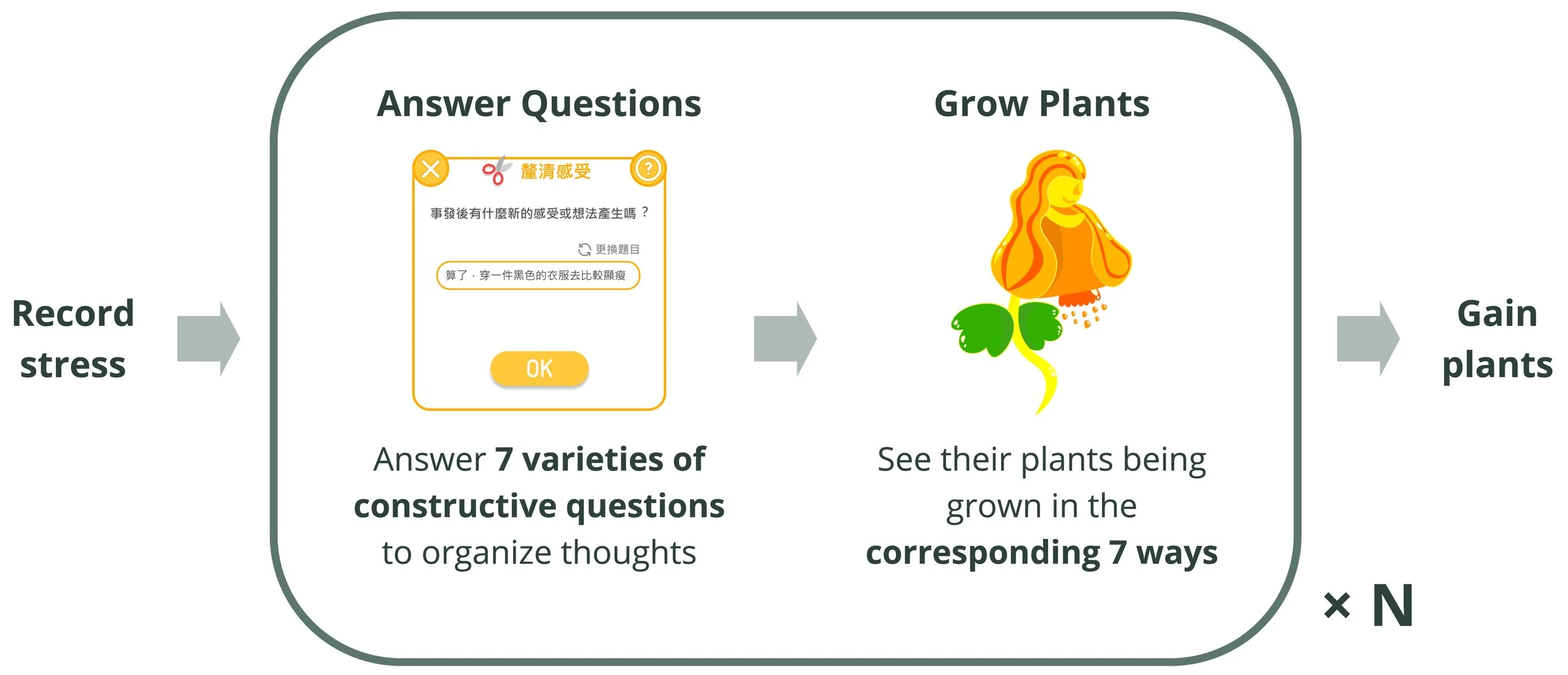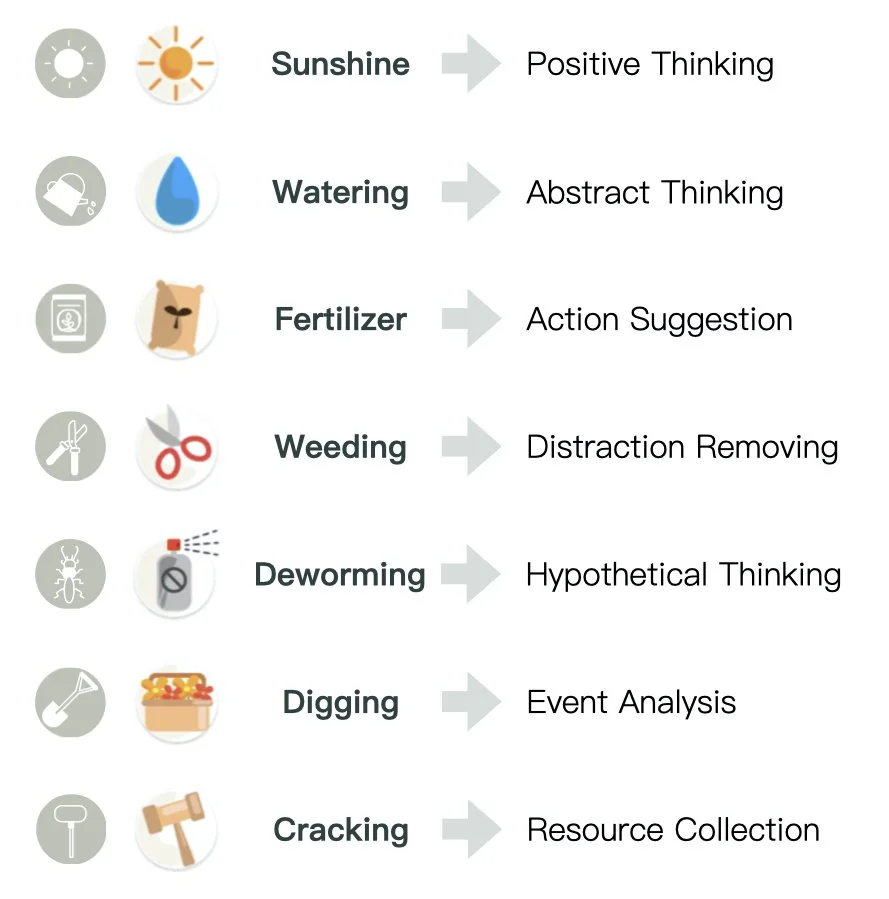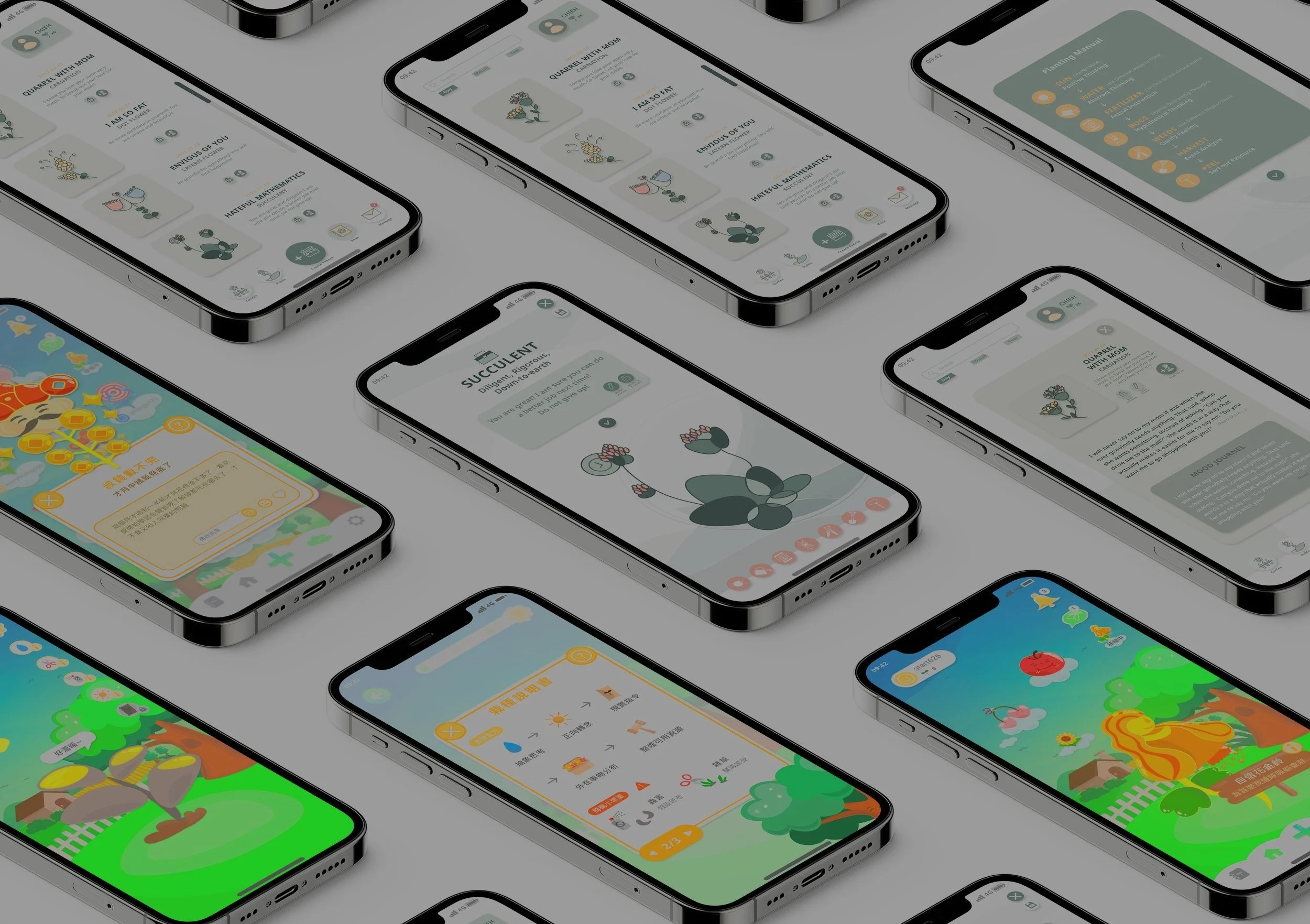Interactive Mental Growth App
Unearth Your Thoughts With a Stress-free Gardening Game
A good amount of the younger generation has experienced negative feelings and thoughts due to stress, especially in the post-pandemic era, where they encounter stressors yet couldn’t access any means to manage them.
> 20%
of the adults in the US have mental health disorders to varying extent
10 million
downloads were generated for the top 10 mental wellness apps in April 2020
US$ 576 million
funding were given to mental health startups in Q1’20, a record high (>60% increase QoQ)
Hence, we aim to create an interactive, gamified application for the younger generation (aged 20-25, targeted at college students and rookie employees), so as to help them alleviate mental stress caused by external stimuli.
HOW MIGHT WE…
apply gamification to help young people under stress
to put apart their negative feelings caused by external factors?
How To Cope? Flip Your Thoughts Over
Folkman and Lazarus (1984) divided coping strategies into two groups: problem-focused and emotion-focused, classified by the objects of the strategy. The one strategy trait shared by both groups is to constantly change cognitive and behavioral efforts to manage external factors — in other words, to change the way you think.
The overview of our MECE analysis
Moreover, according to our in-depth interviews of six young adults (aged from 19 to 23) and MECE analysis, we found that multi-perspective thinking (or simply changing the original way of thinking) is indeed helpful. To go further, in order to come up with different ways of thinking and reduce stress, clarifying the root problems and one’s feelings about them ASAP would be necessary.
Mind Garden: Come Up With Answers, Grow Plants
We would like to create a guide for young adults to contemplate further into the causes of their stress and how their mental reaction would be — let me introduce “Mind Garden”, a self-care application based on playable design, where users are encouraged to organize their thoughts with 7 different directions of constructive questions; once they answer the questions, their virtual plants grow. Also, users can review solved problems and share their ideas with other users anytime they like.
Adapt With “Rational Problem-Solving” or “Healing Mental Support”
During research, we found that our target users mainly come up with two types of reaction towards mental stress: some people see stress as a serious issue, and thus believe rational problem-solving is the best way to cope, while the others believe that since stress has already made them uncomfortable, they prefer to take it more easily and seek mental support — to meet the two totally different needs, we designed two styles of Mind Garden. (Check our app’s 2 different Figma Prototypes! Rational, Healing)
7 Types of Questions, 7 Ways to Grow Plants
In Mind Garden, with each question an user answers, their plants grow a little bit, just like they are irrigating their understanding of mental issues with different ideas.
Moreover, to apply multi-perspective thinking on clarifying problems, we prepared 7 varieties of constructive questions, which leads to 7 corresponding ways to grow plants — we motivate users to answer questions in diverse directions, so that they can see their plants grow up in different ways.
Your Garden: Review Every Thought You Have Ever Grown
Users are thus able to create their own unique garden, with every single plant coming from an event they have ever dealt with, carrying their trains of thought at the time. In their garden, users can review their plants and the stories behind them, add new thoughts to them whenever they want, and share the plants to social media.
Public Garden: Share Your Ideas With Everyone
Whenever our users feel like exchanging ideas with others, they can “transplant” their plants to the Public Garden, where they can also view others’ plants and the ideas behind them, they can also send direct messages to other plant growers that spark their interest. We believe that users should not cope with their stress on their own, but be able to deal with it via Public Garden, so as to get interaction and another fresh eye.
Create A Happier Life
With the constructive-thinking function and visible gardening experience, we hope to give users a multi-perspective guide on how to re-examine their mental issues, along with figuring out what their feelings towards it and what the root causes are. Taking it a step further, we want to help them strengthen their resilience to stress, making way for a life filled with physical and mental wellness.
In our prototype test of five young adults (aged from 20 to 25), we were convinced that Mind Garden would be helpful and fun, while in our quantitative research, we got 73 as the average SUS score for both app designs.
Duration
2021/03 – 2021/06
Lead Instructors
Dr. Hsien-Hui Tang, Mr. Wei-Fan Chen
Team Members
Yu-Chieh Chung, Zi-Jia Huang, Hsin-Ming Chao
Our team designed this application in the course User Experience Design, which was under NTUST Design. The project was co-instructed by Dr. Tang and Mr. Chen, the CEO of Sparkful and the author of Playable Design (2020).
# Personal contribution: user research, MECE analysis, design metaphors, information architecture, constructive question development, prototype testing, usability optimization

